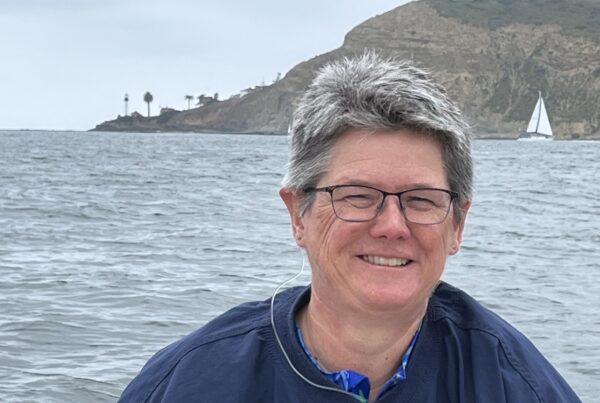R acism is hard and messy. It is a pervasive issue that not only exists in the world, in our country [the U.S.], in the church, but also in each of us. It is wrong. That is something we can hopefully all agree on. None of us want to be racist, and none of us want racism in our churches. But far too often, that’s as far as our thoughts on this topic go, specifically in primarily white churches. That’s why my encouragement is to take at least one step forward into antiracism.
Uncover the wrong foundation
Many of us have been conditioned to view racism as an either/or: you are either racist or you are not. But that is not how it works. It is a lot easier to be able to simply state, “I’m not racist” than to deal with the hard truth that whether or not we realize it, each of us has been shaped by racism. There are policies in place, histories we have been told, and ways of thinking that—without us even realizing it—have conditioned us to think certain ways about people who are different from us.
Related: The Story of Fortune Game/Magee | An Excerpt from Fortune by Lisa Sharon Harper
When we say, “I am not racist,” it ends the conversation. There’s no space for dialogue, or for solutions. There are no steps forward. Those simple words make racism an issue for all of those other people to deal with. You know, those “other people” who are actually the issue. It’s an excuse for us to not have to deal with a hard reality.
I was recently reminded of a tweet I saw a couple of years ago that said, “I want to live in a world where people who learn about harm to others care more about ending it than proving they’re not causing it” (@emrazz). This spoke to me then and continues to speak to me today, not just for myself but I think for the church as well.
Be part of the solution
I don’t know about you, but I don’t want to just “not be the issue;” I would like to be a part of a solution. I would like our churches to not just be “not racist” but to be a part of the solution. We should not be content simply “not being racist,” but we should be asking how we can be anti-racist. How can we be actively working against racism?
Does this mean becoming aware of and wrestling with our own prejudices? Yes! Of course! But it doesn’t stop there.
It means seeking wholeness, flourishing, reconciliation, and justice. It means repentance and renewal. It means being a part of God’s work in the world around us, of making all things new. It means remembering that rooting out racism is worthy of our time, our energy, and our prayers, always. Our caring should not have to be re-awakened when another person of color is killed. Our work of fighting against the evil of racism should not just be in response to tragedy, but working to prevent future harm. Isn’t that what we who follow Jesus are called to? Not just repenting, but seeking to do better.
Related: Is racism a discipleship issue?
Don’t try to tackle the mountain
I believe that becoming antiracist matters. I also believe it is a really big and overwhelming process, and if I’m honest, sometimes when things get overwhelming, it is easy for me to shut down. There is still so much to learn, so much to do. I’m not sure where to begin and so I just don’t. It’s not something I’m proud of, but it is something I believe I’m not alone in.
Especially over the last couple of years, a lot of people have read a lot of books, listened to podcasts, watched a lot of YouTube interviews, and all kinds of other things to help them to learn more about racism and how they can be a part of antiracist work. I hear about all of the ways they are learning, and I cheer them on! But as much as I value the work, as much as I wanted to learn more, as much as I wanted to be a part of working toward goodness and wholeness and flourishing and reconciliation and justice, it all seemed really overwhelming. I had such a long list of books to read that I couldn’t decide where to start. I had so many podcasts queued up that I never got around to listening to. I believe it is so important, but it felt like too much to even start. And I know that is 100 percent my privilege right there—that I got to choose to not learn more. But even as I knew that and felt awful about it, those books stayed unopened and the podcasts stayed unplayed.
For me, one of the most helpful things has been an antiracism prayer gathering on Zoom. It was what I needed to “unstick” me. I believe reading books, listening to podcasts, etc., is all good and important but those lists were too overwhelming for me. Having a calendar event every other week, with a variety of people with different experiences and perspectives joining together to learn, to share, to pray—this was what I needed to get me going, to become more and more aware of this deep-rooted evil of racism without getting overwhelmed. It is easy to think of excuses to not read a book, but it’s a lot harder to say, “I don’t have an hour to pray every couple of weeks.” It was a way for me to learn, and to do so with hope alongside sisters and brothers.
If I’m honest, I need it again. I had been going and loved it and then things got too busy and I got out of a good routine. (You know how that goes.) But I still care, and I want to continue to choose hard work for things that matter.
Start with one thing
If you are looking for a way to say yes—to learning more, to repentance, to looking toward healing and reconciliation—find something that works for you! Maybe that’s a prayer group, or maybe that’s one podcast or one book to start. What will be your one thing that you say yes to?
If you are looking for resources, you can literally Google “antiracism resources” and there you go! Pick one and just start! Don’t be content just saying you’re not a part of the problem. Instead, seek to be a part of a solution. Don’t let the amount of work ahead be a reason to not start. Start with one thing—it’s better than nothing!
How can we as the church better love our neighbors who might be different from us? How can we not only seek to avoid further harm but also to pursue healing? If each of us says “yes” to one small thing, then we get one collective step closer to living into a Revelation 7:9 vision on earth.
Antiracism resources on Faithward
- 1 Corinthians 13 Bible study and project by Rev. Dr. Denise Kingdom.
- Justice and reconciliation prayer service
- Justice and reconciliation prayer devotions based on the Lord’s Prayer
- Growing a healing space around racial trauma. Book excerpt from Trauma and Race: A Pathway to Wellbeing by Rev. Dr. Micah McCreary.
- Three ways to honor Dr. King’s legacy and continue the non-violent fight for justice. Reflection and action steps from Ruth Langkamp.
- Where do we go from here? Reflection on forgiveness by Dr. Peter Watts.
- The pathway to reconciliation. Reflection on a path forward by Dr. Peter Watts.
Rev. Ellen Balk
Rev. Ellen Balk co-pastors Parkway Community Church in Hicksville, New York, with her husband, Aric. She also serves on the Reformed Church in America’s Commission on Christian Discipleship and Education.



